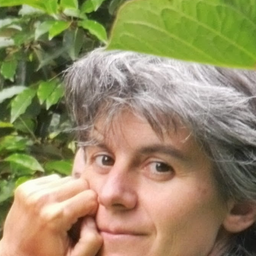
Educated in Barcelona (PhD. in Prehistoric Archaeology, UAB) and the United Kingdom (MA in Public Archaeology, UCL), she has combined an academic career in The Netherlands, the UK, and Spain, with a professional career in heritage management in Spain and Italy, including in both paths several European Commission projects. In the field of heritage management, she has been working on gender, education and archaeology, the management of urban archaeological sites, and the politics of religious conflict in archaeological heritage.
Sessions auxquelles Laia Colomer participe
Lundi 6 Juin, 2016
There are many different kinds of migrants in the contemporary world. They include the familiar figures of refugees or undocumented migrants, associated with and suffering from exclusionary practices, poverty, silencing or repressions; skilled migrants with economic resources but lacking the tools for cultural and social integration; migrants or second generation migrants returning to their homelands and becoming "strangers" there; people moving to several countries as global nomads, etc. An ...
Sessions auxquelles Laia Colomer assiste
Samedi 4 Juin, 2016
What if we changed our views on heritage? And if heritage has already changed? While, on the global scene, states maintain their leading role in the mobilization of social and territorial histories, on the local scale, regions, neighbourhoods and parishes have changed. Citizens and communities too: they latch on to heritage to express an unprecedented range of belongings that no law seems to be able to take measures to contain, often to the discontent of...
Dans le cadre de cette session, nous souhaitons faire, dans une perspective multidisciplinaire et critique, un état des lieux qui interroge doublement, à la lumière de trois axes que sont la narrativité, la temporalité et la performativité, la patrimonialisation des sujets sensibles tant sur ses rôles, ses formes et ses effets sur les sociétés qui les entreprennent, que sur sa fonction révélatrice d’un monde en changement. L’espace public laisse une place grandissante aux objets, aux li...
Much is being made of the perceived breakdown of the nation-state, which was historically configured as a “container” of heritage formations, adopting and perusing local traditions where possible but oppressing them where deemed unsuitable. Migration is seen as eroding the rigid boundaries of this configuration, potentially liberating identities and heritages in the process. This session addresses the relationship between critical heritage and redefinitions of self, other, community and place...
Heritage practices often lead to social exclusion. As an "Authorized Heritage Discourse" (AHD) (Smith 2006) may define what is considered to be heritage, a certain set of social values can come to exclude other values. By formulating heritage policies which reproduce the existing AHD government may further such exclusion. Every now and then AHDs are challenged, leading to what political scientists like Ross (2007; 2009) call "cultural contestations" between groups. These are surrounded ...
This festive event will offer delegates a taste of one of the iconic dishes of Montreal, the smoked meat sandwich, imported by Jewish immigration from Eastern Europe in the early 20th century. In particular, the tasting will allow a discovery of the products of the renowned international institution Schwartz's, the Hebrew Delicatessen for which Montrealers and tourists alike are willing to wait in long line-ups. During the tasting, “Chez Schwartz,” a documentary produced by Garry B...
Most of what we experience as heritage emerges into conscious recognition through a complex mixture of political and ideological filters, including nationalism. In these processes, through a variety of devices (museums, scholarly research, consumer reproduction, etc.), dualistic classifications articulate a powerful hierarchy of value and significance. In particular, the tangible-intangible pair, given legitimacy by such international bodies as UNESCO, reproduces a selective ordering of cul...
Dimanche 5 Juin, 2016
"What does heritage change?" is a multifaceted question to which the answer(s) are in primary respects related to real-life negotiations among different groups of citizens, cultures, races, ethnic groups, sexual identities, and social classes about received, official and/or widely accepted or accomodated intangible attributes, cultural traditions, historic monuments, buildings, and other transmitted or revived historical legacies. Heritage designated by and for whom, for what motivations, an...
Lundi 6 Juin, 2016
Le patrimoine fait aujourd’hui l’objet d’attentions autant que d’agressions et de destructions. Cela peut s’expliquer par les difficultés de son identification ou de sa conservation. Cela peut plus profondément s’expliquer parce que, dès le départ, il célébre un événement ou conserve une mémoire qui peut être ou devenir une source de dissenssions et de conflits politiques. Enfin, sa reconnaissance suscite des gains économiques pour les uns mais des pertes pour les autres. Mais peut-être...
Mardi 7 Juin, 2016
We would like to propose a session, building on the one we ran at the 2014 CHS conference in Canberra, on how emotion and affect feature in the fields of heritage and museums studies, memory studies, public history, heritage tourism, studies of the built and urban environment, conservation, archives and any field of study that deals with the emotional impact and use of the past in the present. There is an increasing interest in how emotion is a form of judgement on things that affect ou...
An experiment in moving memory, this live event bridges public and academic space to re-imagine knowledge exchange, creation and impact. Around the globe the planning of large-scale memorial-museum projects concerned with violent histories are frequently marred by conflict, omission, and competitions of victimhood. This problem also extends to scholarship on genocide and memory. “Moving Memory: difficult histories in dialogue” is a collaborative multi-sited research exhibiti...









